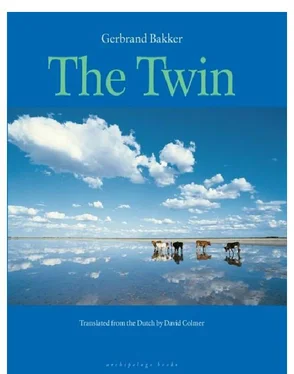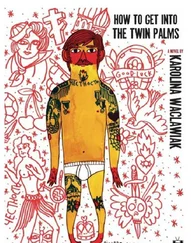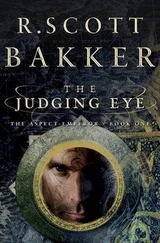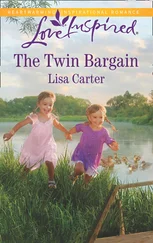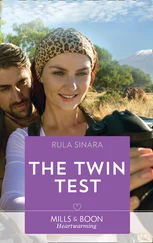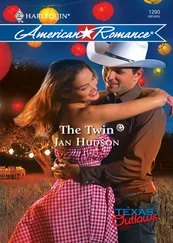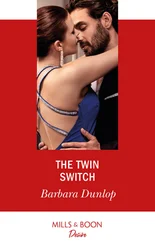It was the first time I had been in the cottage since Jaap had been living there. I didn’t know what I was going to say, I hadn’t come up with a reason for going there. I just felt that I had to. I went on a weekday evening.
He opened the front door. “Hi, Helmer,” he said, as if I dropped by every day. He was wearing a short-sleeved shirt with the top buttons undone. His arms were tanned brown. It had been a good four months since he had been given his notice. I wasn’t surprised by his knowing immediately who I was. I was pleased. Henk would never come knocking on his door. He walked through the small hall to the small living room. I closed the front door. One of the windows in the living room was open, propped with a long wooden slat. There was a pile of books on a coffee table in the middle of the room, a roll-up was smoldering in an ashtray. Next to the ashtray was an almost empty pouch of tobacco. Van Nelle, I read, medium-strong rolling tobacco. Next to the pouch was a packet of Mascotte cigarette papers. Quiet music was coming from a large radio. He sat down on a sofa and indicated a chair. I sat down and wiped my forehead.
“Hot,” he said.
“Yeah,” I said.
A summer evening cyclist rode past, and a little later another one.
“Would you like a drink?”
“Sure.”
“A beer? I’m having one.”
“Okay.”
He got up and fetched two beers from a cupboard in the kitchen. He didn’t have a fridge. He put the bottle, which was colder than I had expected, in my hand and sat down again, slouching slightly. One arm on the armrest, the hand holding the beer in his lap. The hand was clean after weeks without any manure, greasy cowhides, diesel or earth. The roll-up smoldered on.
“Where do you swim?” he asked.
“Near Uitdam,” I said.
“I swim at the storm haven.”
“The storm haven?”
“At the start of the dyke to Marken.”
“Oh, there.” I sipped my beer and wiped my forehead again. He hadn’t taught me how to swim. I stared at the pile of books and pretended to read the titles on the spines, while trying to imagine how he would have gone about that, swimming lessons.
He moved on the sofa. Now he laid the arm that had been on the armrest in his lap as well, the fingers of both hands wrapped loosely around the beer bottle. “What’s wrong?” he asked. He talked with his upper lip, exposing his uneven front teeth.
I didn’t say anything, but kept staring at the books.
“Is it your brother?”
I nodded and swallowed.
“With that bird?”
“Yeah,” I said.
It was still early, but the summer was drawing to a close. Most of the light was coming in through the open kitchen door. A ditch beyond the cottage had started steaming and a thin layer of mist was already forming over the fields. The roll-up had smoldered away, the smoke was still hanging in the small living room in a tidy horizontal layer. I looked at the farmhand, his short hair was touching the bottom of the layer of smoke. I saw what I expected to see: him looking back at me the way he had looked at me then — it must have been at least ten years earlier — simmering, feeling rebellious towards Father and looking for an ally. He stood up, the smoke swirled around his head.
“Come on,” he said. He said it gently, the way he had always spoken to us all those years.
We put the bottles down on the coffee table simultaneously.

He didn’t have a car at the time, maybe because he couldn’t afford it. We went by bike to the storm haven, not to the dyke near Uitdam. I sat on the carrier and held on to him when he swerved. He had draped a towel over his neck and the ends blew back under his arms and flapped against my chest.
“I saw them,” I said to his back.
“Your brother and that bird?”
“Yeah.”
He turned onto the dyke and pedaled on stolidly. “I think it’s for the best,” he said.
“What do you mean?”
“You’re not your brother.”
“No. Of course not.”
A few boats were moored in the storm haven. He lay his bike down on the grass and walked out onto the short breakwater. There was no one around. He took off his clothes and picked his way over the blocks of basalt and into the water. He looked like a racing cyclist: his arms and legs were brown, and his shoulders, back and bum were as white as white can be. Henk’s was the only naked body I knew. This was a much larger body, a strange body, not a body you could simply mold yourself to. When the water reached to just over his knees, he fell forward into it. “Come on,” he called. I took off my clothes as well. I didn’t understand exactly what he had meant by “you’re not your brother.” He watched me clamber clumsily over the blocks of basalt. Then we swam: semicircles around the end of the short breakwater. A man on one of the boats raised a hand in greeting. For the first time I asked myself if Jaap usually swam alone. Or were there other farmhands in the area he did things with? I felt awkward, it was the first time I was doing something with him, the first time he was someone other than the farmhand. I was feeling a bit light-headed too, after that bottle of beer. He was a fantastic swimmer. A few long strokes would put him almost twenty yards ahead of me in no time. “You have to keep your fingers together,” he said. I kept my fingers together. “Don’t forget to use your legs.” I kicked my legs in the water. “Try to keep your head in the water and then breathe on one side.” I tried and choked. I thought I could already swim, but he disagreed. He didn’t take hold of me with his hands during the swimming lesson, maybe because it wasn’t convenient, maybe because I was no longer a kid he was teaching to skate.
He was already drying himself when I got out of the water and slipped on an algae-covered block of basalt. I fell forwards and had plenty of time to put out my hands to save myself, but still came down hard on my knees. Jaap had to laugh. Until I scrambled back up and walked over the grass towards him. “You’re bleeding,” he said. I looked at my right knee; it felt hot and now I understood why. He looked around, bent over and picked his underpants up off his pile of clothes. He knotted them around my knee. He handed me his towel. “Dry yourself off,” he said. “I’ll bandage it later, when we get home.”
He sat me in a chair and went upstairs. I heard him rummaging around. When he finally came back, he was carrying an enormous first-aid kit, the kind with a round lid with a handle in it. Kneeling next to my chair, he very carefully removed the underpants before lifting a bottle of iodine out of the box. Home, I thought, and gritted my teeth. Then he bandaged my knee by wrapping a wide strip of gauze around it and sticking it down with Elastoplast. The radio was still playing quietly, some kind of jazz. Come on, I thought. From behind the cottage, through the open kitchen window, I heard a sheep’s dry, barking cough. He stood up and ran his hand through my damp hair, like an elderly village doctor comforting an upset child. “Another beer?” he asked. “To get over the fright?”
“Okay,” I said.
A little later we were sitting opposite each other again, like earlier in the evening, each holding a bottle of beer. Jaap had rolled himself a cigarette and was smoking serenely. A car drove by. It was so quiet that we heard it turning up onto the dyke in a lower gear a bit further along. When I’d finished my beer I stood up. “I’ll be heading off,” I said.
Jaap stood up too. “I don’t know exactly how it works with twins,” he said, “but I can imagine them having to split up eventually.”
I still felt awkward, but not as much as I had an hour before. What with the swimming, his slow smoking, bandaging my knee and the way he raised the beer to his mouth just like me, he was hardly a farmhand at all any more. I nodded.
Читать дальше
